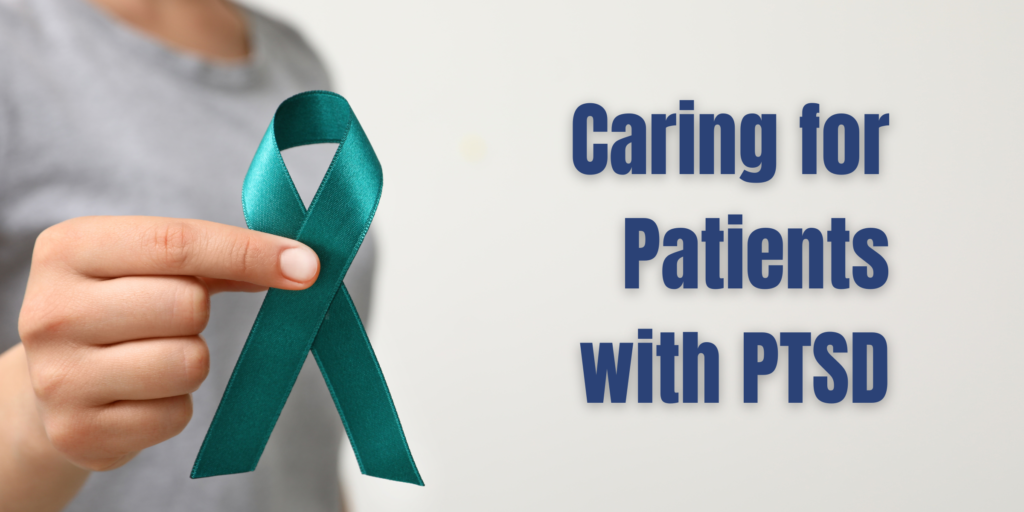June is posttraumatic stress disorder (PTSD) awareness month. My message is meant to raise awareness: nursing assistants and phlebotomists who provide healthcare are frontline in facing the realities and experiences of what it’s like caring for patients with PTSD. New Hampshire nursing assistants (LNA) and phlebotomists (CPT) are often the first point of contact for those with trauma-related experiences and PTSD symptoms.
About 6 of every 100 people in the United States will have PTSD at some point in their lives. Women are more likely to have PTSD than men. Individuals who identify as LGBTQ+ are at increased risk compared with their cisgender and heterosexual counterparts. Veterans are more likely to have PTSD than civilians. PTSD is highly comorbid with other mental health conditions such as depression, anxiety, and substance use disorders. Patients with PTSD experience higher rates of chronic pain, sleep disorders, anger management problems, and self-harm than the general population. Many patients are not identified and are not offered support, education, or mental health referrals.
Trauma-Informed Approach
Because many patients with PTSD will not report their trauma experiences or related symptoms, a trauma-informed approach to healthcare is essential. Staff training is vital to ensure New Hampshire front line employees in all healthcare settings have the tools to best care for their patients, anticipating that there has been some trauma experience, and proceed with the “toolbox” of skills learned in their training.
Person-Centered Care
Recognition of a potential diagnosis of PTSD provides the opportunity for person-centered care. It is important to ensure our nursing assistants and phlebotomists share results from their interactions indicating possible PTSD with the nurse. It is essential we teach our staff how to receive this information in a supportive and nonjudgmental manner, acknowledging any reported distress, and ongoing trauma or danger immediately.
Most nursing assistants and phlebotomists at the frontline of our healthcare systems do not have the expertise to recognize the symptoms, or the communication skills to ask the appropriate questions, or knowledge of appropriate responses to provide. At LNA Health Careers, we focus on these skills with our students, but the training needs to continue in the workforce for professional development.
Information & Communication
Finally, be sure to provide your staff with information about PTSD and let them know the effective way to navigate these patient care situations and the importance of reporting for everyone’s safety and follow-up care.
As health care leaders, we can make a difference for people living with PTSD by educating our front-line staff. We have an opportunity to improve job satisfaction by training our nursing assistants and phlebotomists in the skills needed to approach and care for people living with PTSD.
Resources
https://healthquality.va.gov/guidelines/MH/ptsd/
https://www.apa.org/ptsd-guideline/ptsd.pdf
Treatment Options for People with Posttraumatic Stress Disorder (PTSD)
-Kerri Dutton, RN: Owner & Director of LNA Health Careers

